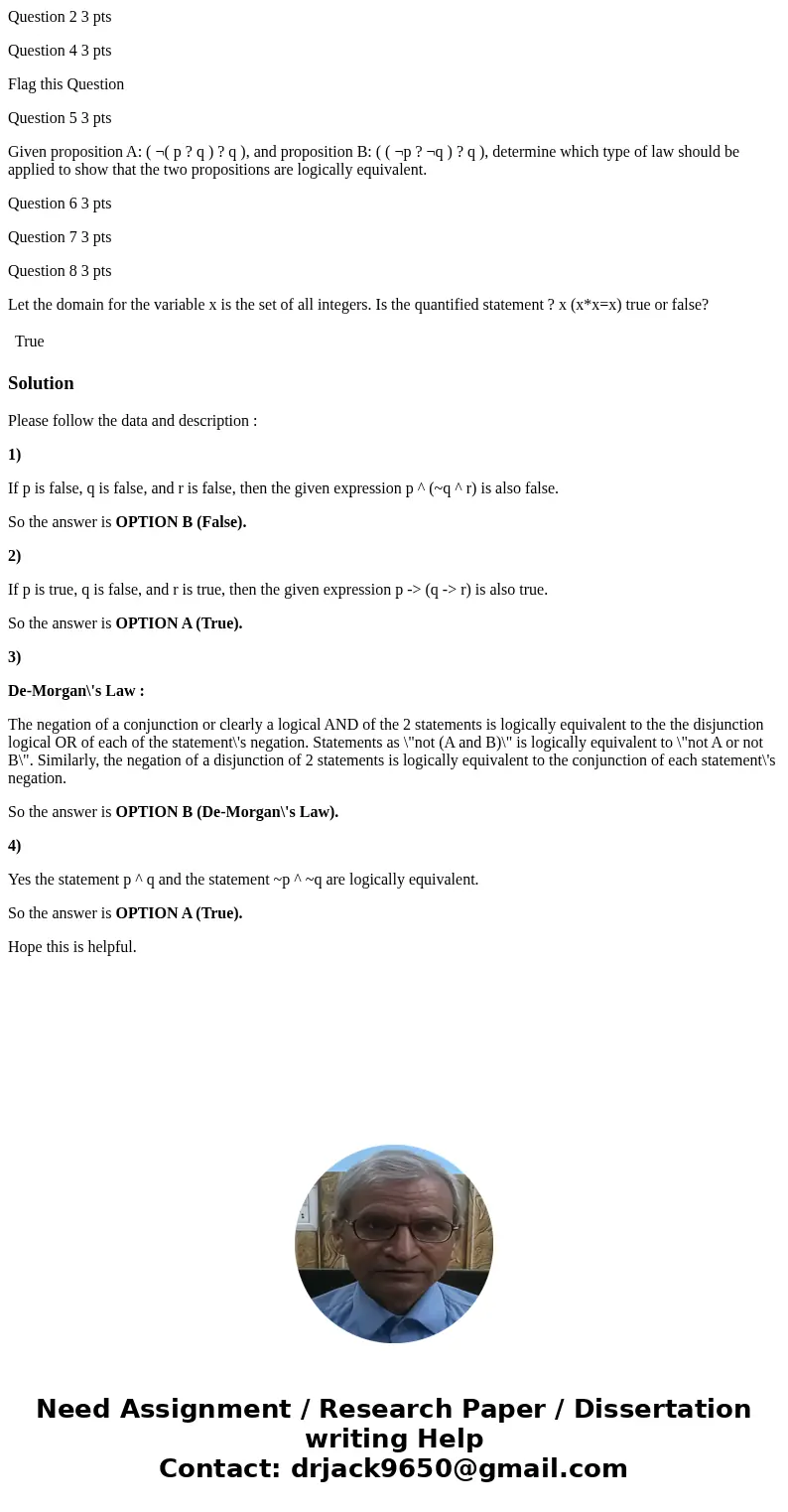Question 2 3 pts Question 4 3 pts Flag this Question Questio
Question 2 3 pts
Question 4 3 pts
Flag this Question
Question 5 3 pts
Given proposition A: ( ¬( p ? q ) ? q ), and proposition B: ( ( ¬p ? ¬q ) ? q ), determine which type of law should be applied to show that the two propositions are logically equivalent.
Question 6 3 pts
Question 7 3 pts
Question 8 3 pts
Let the domain for the variable x is the set of all integers. Is the quantified statement ? x (x*x=x) true or false?
| True |
Solution
Please follow the data and description :
1)
If p is false, q is false, and r is false, then the given expression p ^ (~q ^ r) is also false.
So the answer is OPTION B (False).
2)
If p is true, q is false, and r is true, then the given expression p -> (q -> r) is also true.
So the answer is OPTION A (True).
3)
De-Morgan\'s Law :
The negation of a conjunction or clearly a logical AND of the 2 statements is logically equivalent to the the disjunction logical OR of each of the statement\'s negation. Statements as \"not (A and B)\" is logically equivalent to \"not A or not B\". Similarly, the negation of a disjunction of 2 statements is logically equivalent to the conjunction of each statement\'s negation.
So the answer is OPTION B (De-Morgan\'s Law).
4)
Yes the statement p ^ q and the statement ~p ^ ~q are logically equivalent.
So the answer is OPTION A (True).
Hope this is helpful.

 Homework Sourse
Homework Sourse